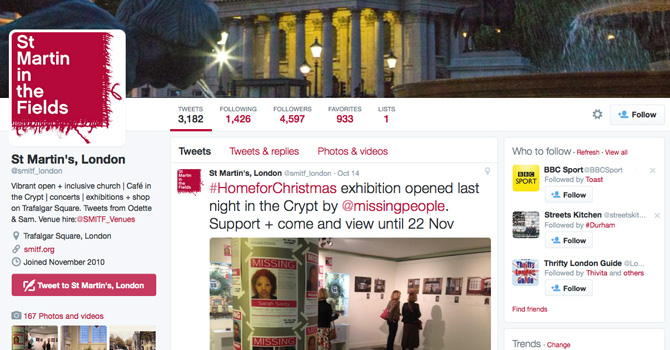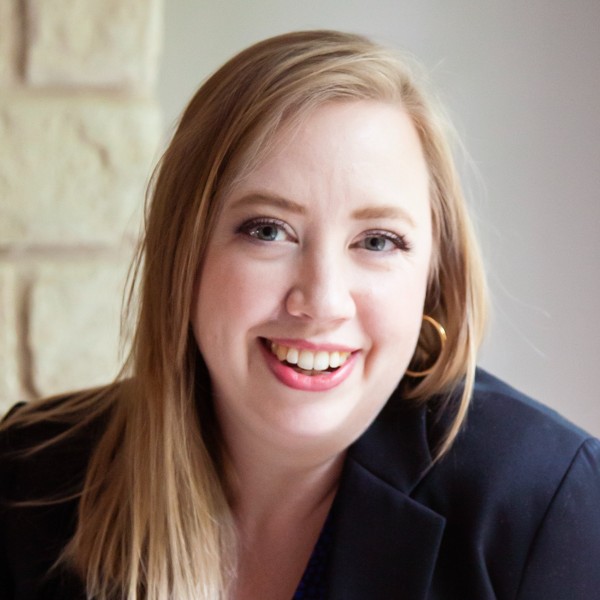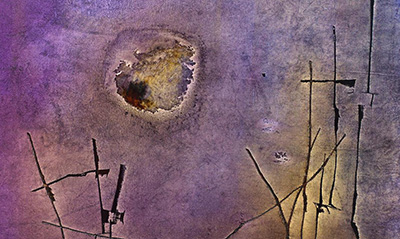Editor’s note: Faith & Leadership offers sermons that shed light on issues of Christian leadership. Matt Cook delivered this sermon on June 22, 2011, at the Cooperative Baptist Fellowship Pastors and Scholars Studio before the CBF’s General Assembly.
My son saw the ocean for the first time in his life yesterday. He and his younger sister had a contest to see who could see it first. Honestly, the contest idea just popped into my head as a way to distract them on the final 30 minutes of the long drive from Little Rock to Tampa. But for my son, who won the contest, it was something more. “Daddy, Daddy, it’s the ocean! There’s the ocean; I see it! I see it!”
I don’t know if Abraham was in the habit of taking Isaac with him on any of his road trips. But regardless of whether it was his first, I’m betting Isaac was excited. I’m betting that, just like my son, he had a hard time sleeping the night before, because he was going on a journey with his father. Where would they go? What might they see and do?
Then again, I suspect Abraham had a hard time sleeping the night before the journey, too -- but for a far different reason.
Abraham has always been an intriguing figure for me. The writer of Hebrews calls him Mr. Faithfulness, but I just call him a bit crazy.
If some God-fearing Jews hadn’t written Abraham’s story down, somebody else could have done it, and it might have read like a Jon Krakauer book. Abraham’s story belongs to that pantheon of narratives that includes people who climb Mount Everest without oxygen tanks or cross the Sahara desert on nothing but camel’s milk.
Who sets out to build a new life in uncharted territory with a head full of gray hair on nothing but a calling from God? It’s a bit crazy when you think about it.
And yet Abraham learns, often through painful trial, that listening to that calling -- that heeding God’s voice -- leads to blessing. Charting his own pathway, however, even if it seems easier or less risky, inevitably causes problems for him and for those around him.
Then again, in this part of Abraham’s story, the stakes are a bit higher, aren’t they? Part of what makes this story so challenging for many of us, and certainly for me, is that we know what it’s like to love someone or something so much that we can’t imagine giving it up.
My story parallels Abraham’s, painfully so.
Before our son Nathaniel came along, Allyson and I had been trying to get pregnant for a long time. We were several levels into the various treatment options when finally we got the good news -- and more than we even bargained for. We were pregnant with twin boys. But the pregnancy wasn’t easy.
The boys were due in late October, but they arrived on Aug. 22 -- 10 weeks early. A day later, for reasons that doctors could never really explain to us, our son Micah coded. They brought him back, but then it happened again. The second time, they couldn’t bring him back.
As you can imagine, we were devastated. And yet the strangeness of it all was that, even as we mourned, there was another little boy who was, at the very same time, the living embodiment of joy for us. We buried Micah that Friday, then went back to the hospital to hold a bundle of joy with tears in our eyes. And then the next day, another shoe dropped.
The doctor told us that there was something on Nathaniel’s scans that troubled him, a bright spot on the images that shouldn’t be there. He was afraid that Nathaniel could have a condition called PVL, or periventricular leukomalacia. PVL results when a part of the brain stem doesn’t receive oxygen during gestation or birth and the tissue dies. PVL can cause some pretty severe conditions, including seizures, and certain physical disabilities as well. If he had it, there was nothing the doctor could do, and it would be years before we knew just how severe a case it was.
Micah’s death had been so sudden that we didn’t even have much time to feel the dread of uncertainty before the pain of his death set in, but with Nathaniel, it was very different. And I have to admit, I was not very reverent or respectful with God in those days. I was at times confrontational, at other times entrepreneurial.
One day, I’d demand that Nathaniel was going to be healthy or else. The next day, I’d offer God any manner of bargain he might choose, as long as he would make Nathaniel OK.
I suppose I’d like to tell you that I just put my son in God’s hands and with some kind of Zen-like sense of calm said, “God, I trust you.” But I didn’t.
I worried, I begged, and I prayed harder than I’ve ever prayed, but they were the prayers of a desperate father filled with uncertainty, grasping at every straw he could get his hands on. Thankfully, as the weeks progressed, that bright spot on Nathaniel’s scans began to disappear, and today, despite his prematurity, he is healthy and whole.
I tell you that part of my story, however, because I can honestly say I know what Abraham was going through. I have been there. I have faced both the uncertainty of waiting for a blessing and the agony of wondering whether that same blessing was now going to be taken from me. And yet what I am discovering, as I’m sure you already have or soon will, is that it is in the midst of uncertainty, rather than certainty, where faith is born.
That brings me back to all of us, and why we’ve been gathering these past few months together. These are uncertain times for those of us in this room, and if anything, the trend is only increasing. Ask those present what it felt like to be in the room when the national Cooperative Baptist Fellowship laid off 13 people earlier this year.
Ask our friends from Central Seminary what it felt like to go through a downsizing, or our friends from Richmond what it feels like now to be teaching in the midst of the challenges they are facing. And that just names a few of the more visible challenges. All of that uncertainty, I believe, is symptomatic of the larger uncertainty that Christianity as a whole faces in our culture.
All of us in this room are old enough to remember a day when the church in North America was more important or more influential, days when religious faith was more crucial to people’s self-identity and the decisions they make. And those days, even in places like Atlanta, Kansas City, Richmond and Little Rock, are waning, and they’re not coming back. And that has consequences for how we live out our callings.
The theological educators have a choice. You can choose to train students for a church that is dying because doing so fits patterns that more readily promote academic respectability in the larger world, or you can train students in ways that may seem less academically impressive but are more likely to equip students to pick up their crosses and carry them.
The pastors in the room also have a choice. We can work desperately to extend the life span of a Christendom already on life support. We can try to convince people that worshipping God will make them happy, healthy, wealthy and wise. Or we can introduce them to the God who demands everything from them, even if that means sacrificing our dreams of the comfort and respectability that go to those who build large organizations.
Don’t get me wrong. I’m not saying that academic respectability is a bad thing, any more than I’m saying that having more people come to our churches is a bad thing. But then again, neither is keeping your son from being sacrificed on an altar, which is exactly what God asked Abraham to do. The dream of a son had long been an all-consuming dream for Abraham, but God wanted to make certain that the dreams Abraham was dreaming weren’t just good dreams, they were God dreams.
This is also, I believe, what God wants from us and for us, because God is a father, too -- a father who knows what it’s like to lay something precious on the altar.
My prayer for us in these uncertain days is that we will remember that and remember it well enough to trust the God who called us out into uncharted territory in the first place and blessed us. Remember that well enough to regain a sense of childlike wonder at the thought of going on a journey with our Father -- even if, perhaps especially if, we’re going somewhere we’ve never been before. Amen.












